Insights | Lower Prep Art: Growing confidence and capabilities early on
21 Aug 2019

Janet Willis Prep School art teacher
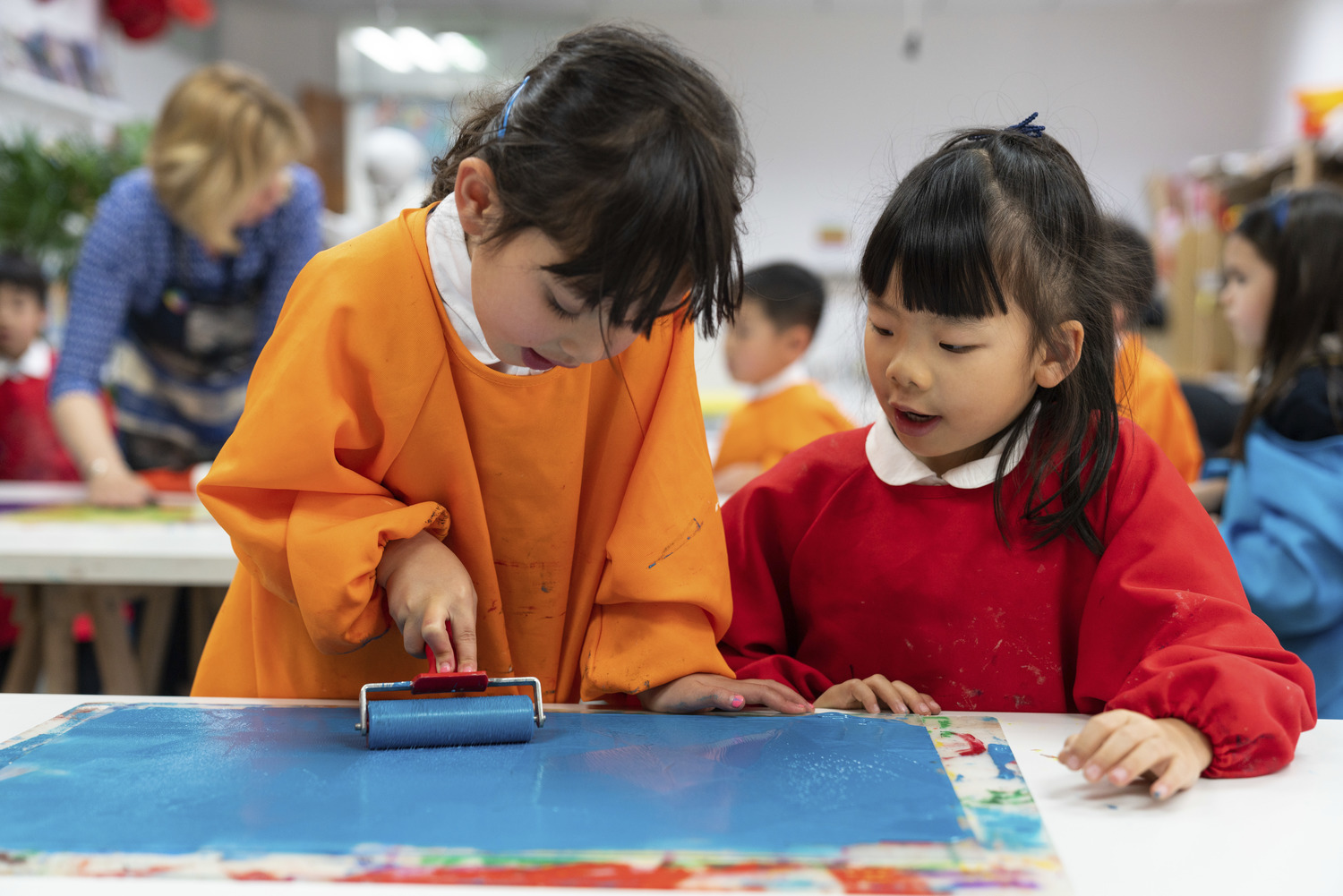 In the Lower Prep, our overall aim in art is to ensure that our pupils experience a wide range of artistic techniques, processes and materials as early on in their academic lives as possible. As they become familiar with each new element – whether it’s observational drawing, monoprinting, clay work, lino, painting or collaging – it builds their existing ‘toolkit’ of artistic skills and also their confidence to add new and even more ambitious tools to it. This means that as they progress, mastering each new skill or medium along the way, they become more versatile and have greater choice when deciding what artistic approach they think will suit them best for any given project.
In the Lower Prep, our overall aim in art is to ensure that our pupils experience a wide range of artistic techniques, processes and materials as early on in their academic lives as possible. As they become familiar with each new element – whether it’s observational drawing, monoprinting, clay work, lino, painting or collaging – it builds their existing ‘toolkit’ of artistic skills and also their confidence to add new and even more ambitious tools to it. This means that as they progress, mastering each new skill or medium along the way, they become more versatile and have greater choice when deciding what artistic approach they think will suit them best for any given project.
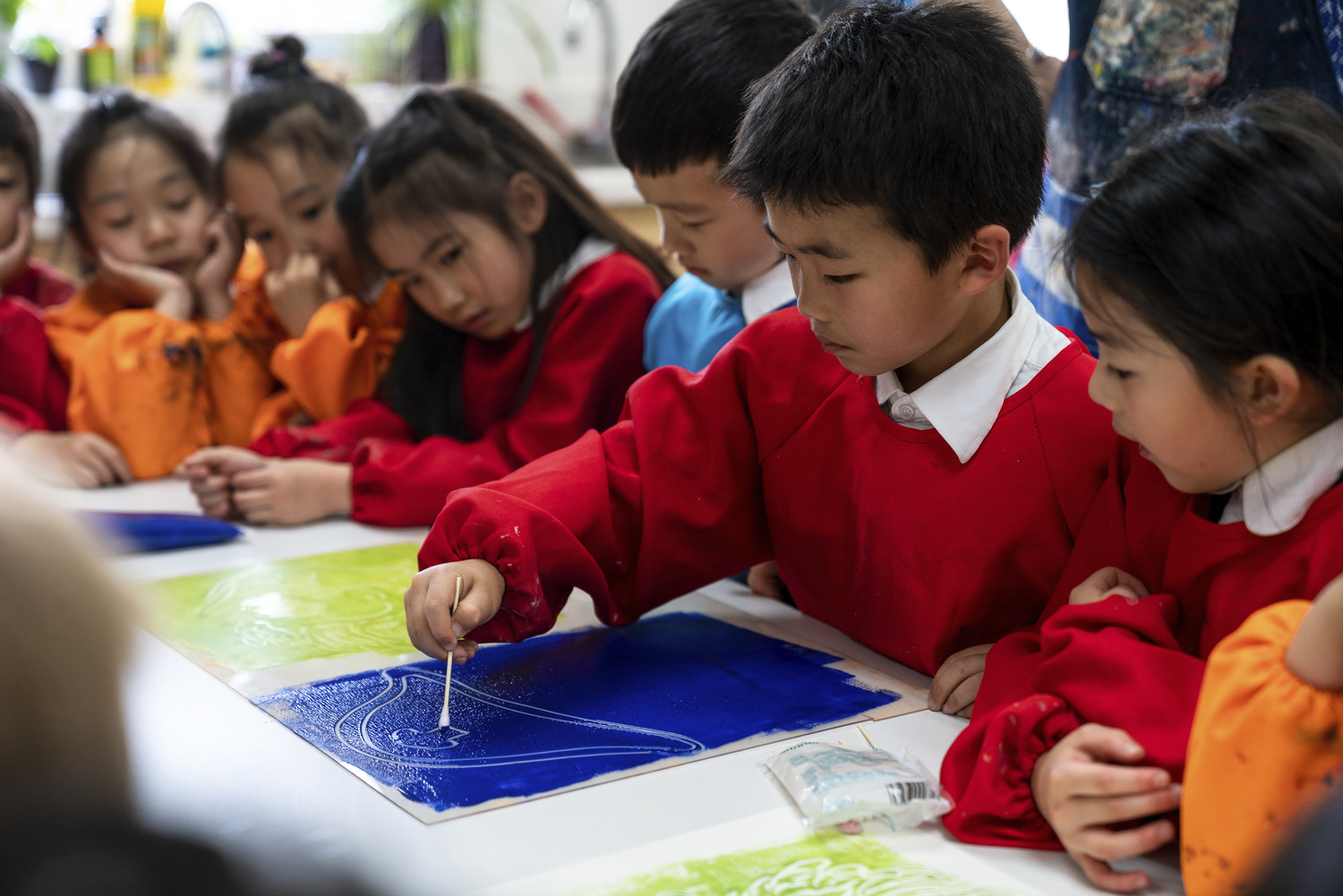 Ultimately, we want every pupil in the Lower Prep to be able to say: “I like art, I can do art,” and mean it. We want them to understand that being ‘good at art’ doesn’t simply mean that they can create a photo-realistic drawing of a bowl of fruit; it means that they are confident enough to put their personality into any creative task and make an honest go of it, without too many hang-ups about the end result.
Ultimately, we want every pupil in the Lower Prep to be able to say: “I like art, I can do art,” and mean it. We want them to understand that being ‘good at art’ doesn’t simply mean that they can create a photo-realistic drawing of a bowl of fruit; it means that they are confident enough to put their personality into any creative task and make an honest go of it, without too many hang-ups about the end result.
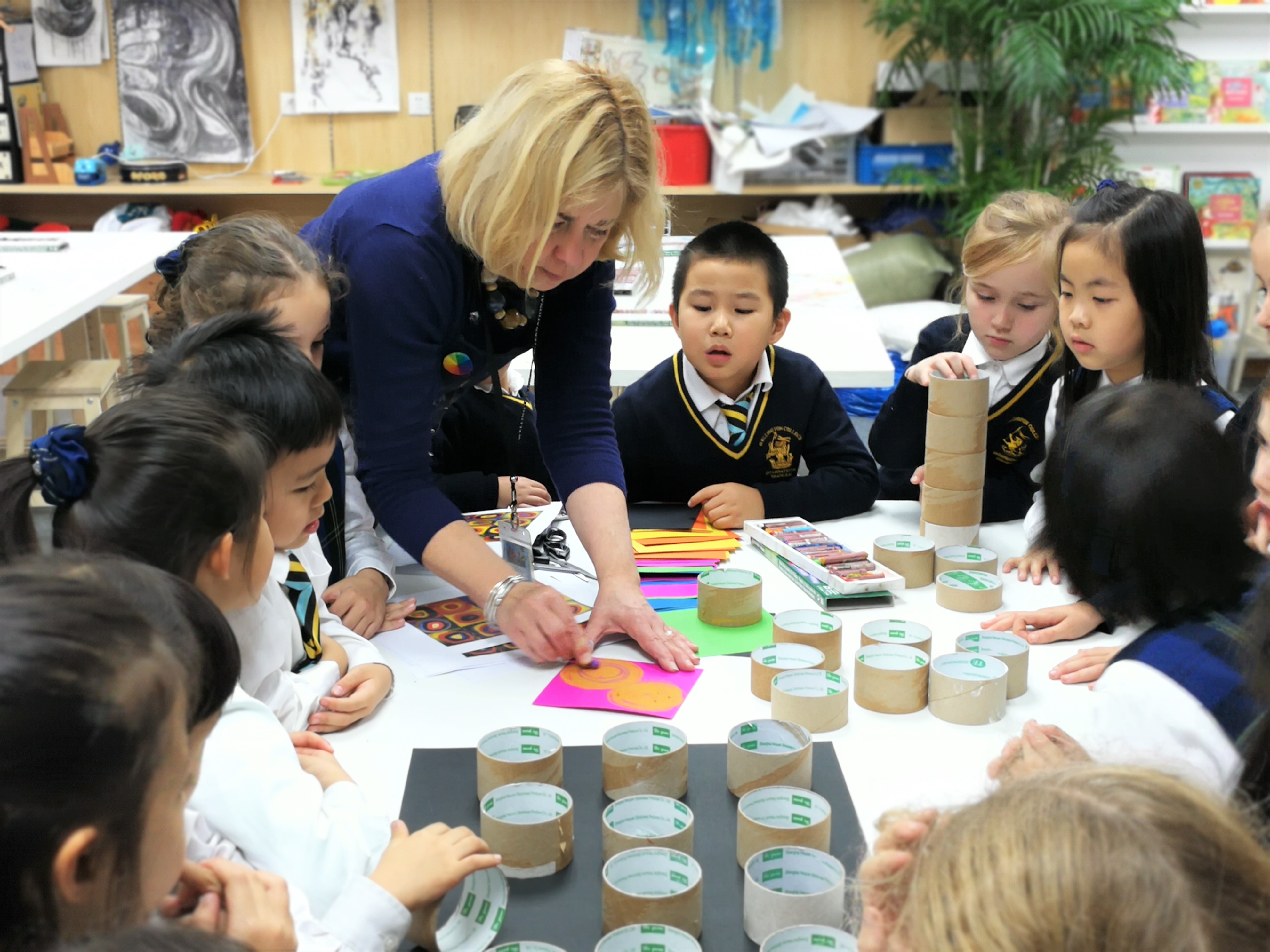 This is a very important phrase that I have on my wall, because the pupils need to remember it in every lesson. It’s the making of a piece of art that matters most, because this part of the process is where 90% of the learning takes place. As they make the piece, the pupil is constantly thinking, making decisions, making artistic judgement calls, innovating, improvising, practising and honing their skills. All of this and more brings a piece of art to life – the making is where it all happens!
This is a very important phrase that I have on my wall, because the pupils need to remember it in every lesson. It’s the making of a piece of art that matters most, because this part of the process is where 90% of the learning takes place. As they make the piece, the pupil is constantly thinking, making decisions, making artistic judgement calls, innovating, improvising, practising and honing their skills. All of this and more brings a piece of art to life – the making is where it all happens!
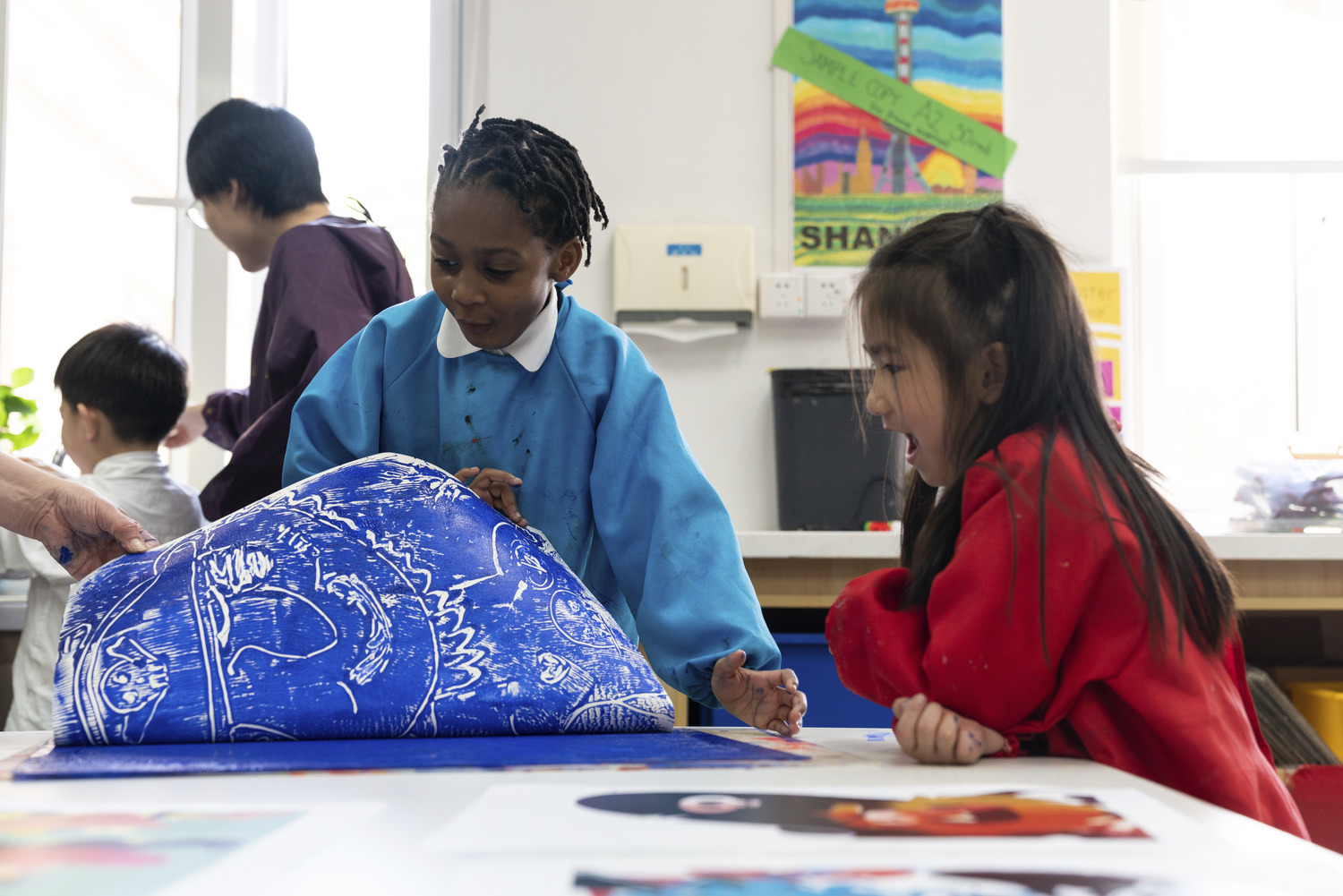 Of course, the pride and joy of seeing the finished product at the end of the process is also important. This is where the final 10% of the learning comes in, as the pupil can review the whole creative process and communicate their opinion of what they enjoyed, what they would do differently another time, what new approaches they might like to attempt next time, and so on.
Of course, the pride and joy of seeing the finished product at the end of the process is also important. This is where the final 10% of the learning comes in, as the pupil can review the whole creative process and communicate their opinion of what they enjoyed, what they would do differently another time, what new approaches they might like to attempt next time, and so on.
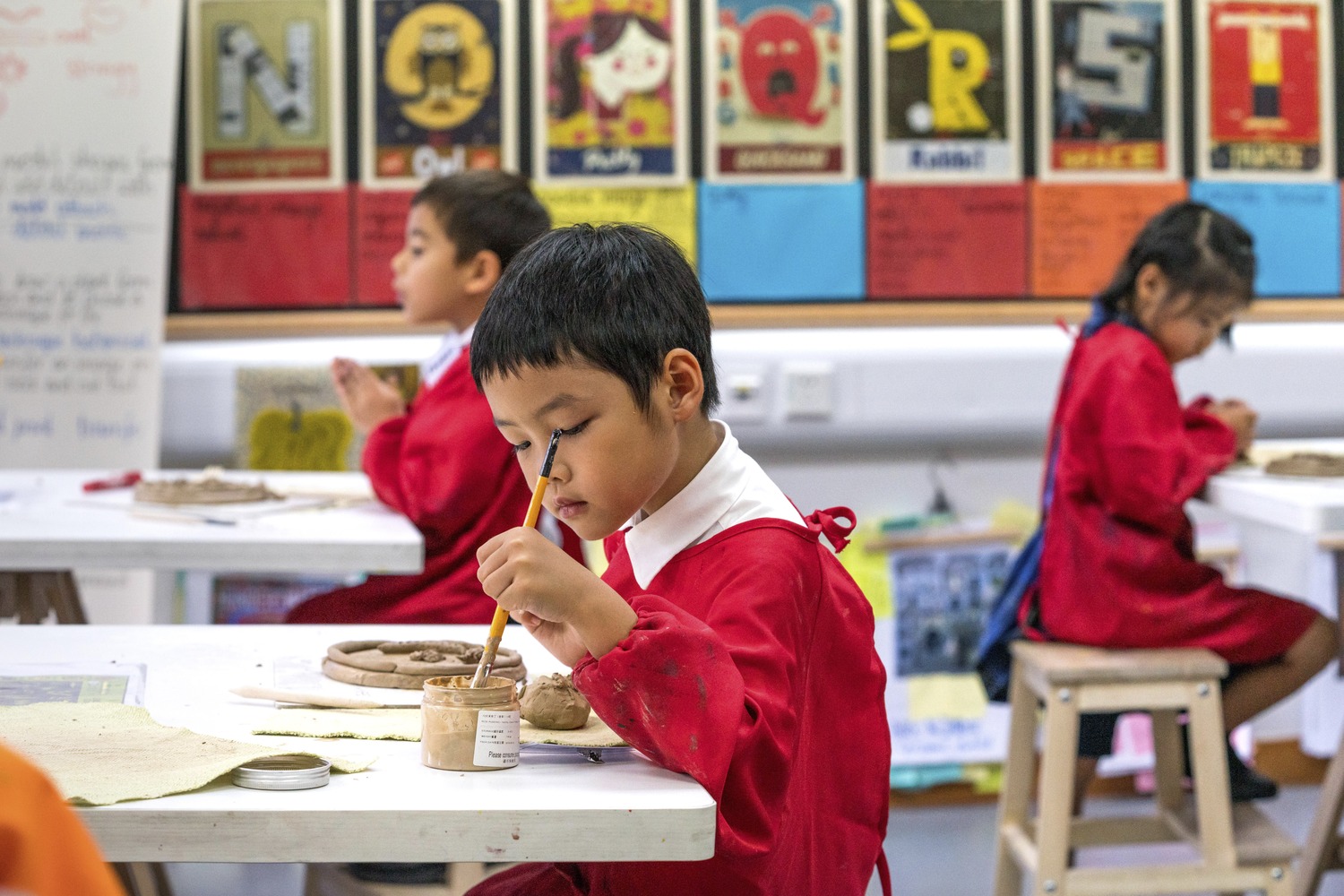
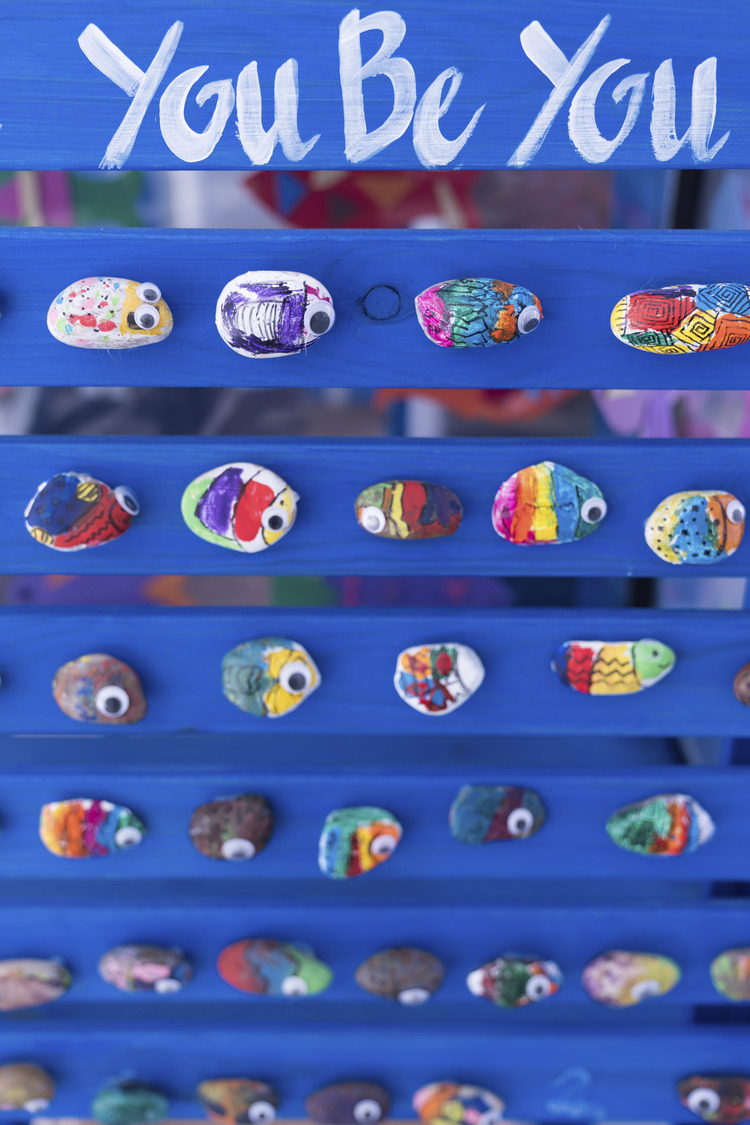 However, just because the whole year group is being taught the same skills and techniques, the individual outcomes of each project will always be different. There is always scope for individuality in each project and we want our pupils to be bold, be openminded and to ‘dare to be different’.
However, just because the whole year group is being taught the same skills and techniques, the individual outcomes of each project will always be different. There is always scope for individuality in each project and we want our pupils to be bold, be openminded and to ‘dare to be different’.
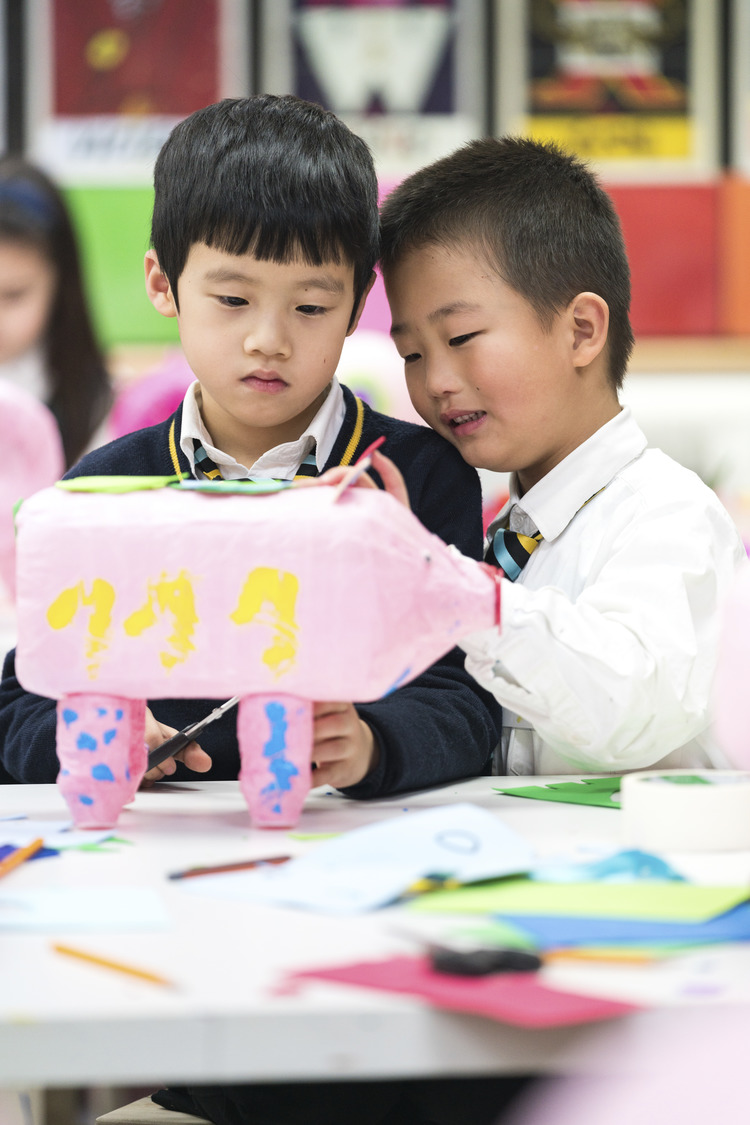 While recycling technically isn’t a formal part of the Lower Prep art curriculum, we do follow the philosophy that practically anything can be turned into a piece of art. Provided that it’s not dangerous or unsanitary, anything can be reshaped, repurposed and reimagined as something new. If you look around my classroom, you’ll see that it’s something of a treasure trove of materials that could easily have been thrown away, but instead are ready to be turned into something different, creative and exciting by pupils eager to experiment with their art.
While recycling technically isn’t a formal part of the Lower Prep art curriculum, we do follow the philosophy that practically anything can be turned into a piece of art. Provided that it’s not dangerous or unsanitary, anything can be reshaped, repurposed and reimagined as something new. If you look around my classroom, you’ll see that it’s something of a treasure trove of materials that could easily have been thrown away, but instead are ready to be turned into something different, creative and exciting by pupils eager to experiment with their art.
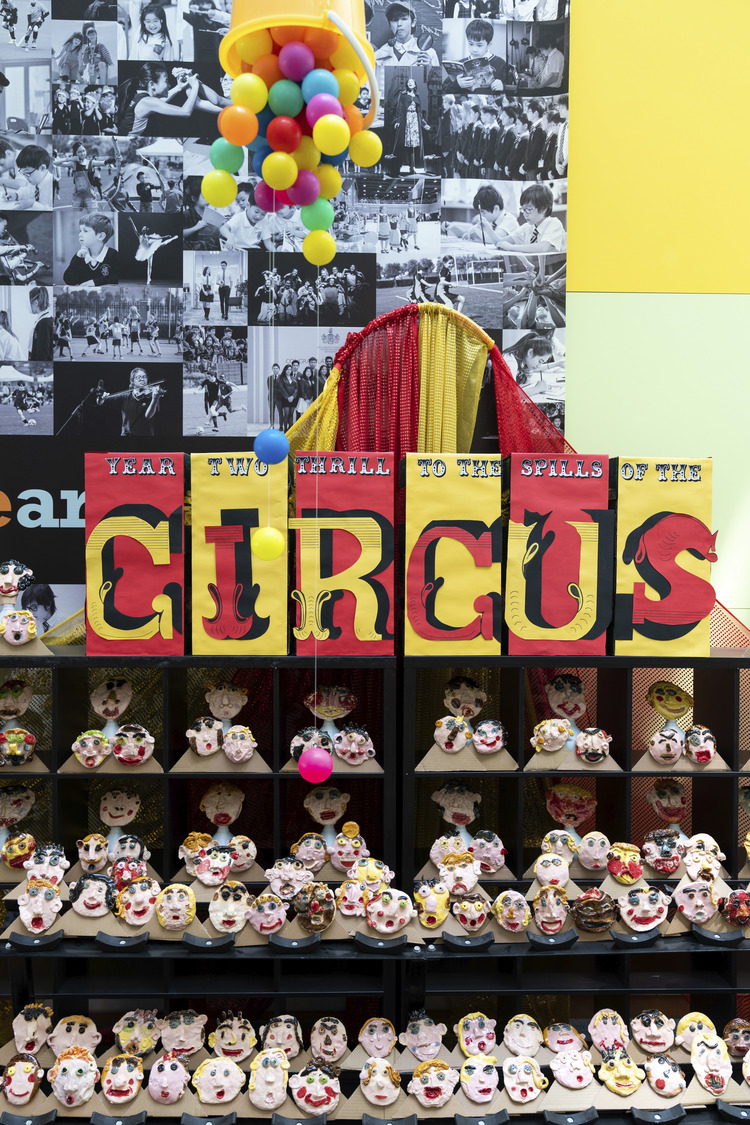 Everything from scraps of paper from previous art projects, to cardboard packaging, foam and polystyrene, newspapers, iPad boxes, bin bags, plastic bottles, bubble wrap, chocolate boxes, hardened clay – we don’t throw anything away! We want pupils to understand the value of materials and cost of creating something – ecologically as well as monetarily. As the concept of being a responsible global citizen is ingrained in the Wellington ethos, understanding the importance of recycling is something we want to instil in pupils as much as possible. It’s also an excellent way to improve their artistic versatility – very quickly our pupils realise that they don’t need something pristine to turn into a piece of art, they only need to see the potential in any material and be ready to get creative with it.
Everything from scraps of paper from previous art projects, to cardboard packaging, foam and polystyrene, newspapers, iPad boxes, bin bags, plastic bottles, bubble wrap, chocolate boxes, hardened clay – we don’t throw anything away! We want pupils to understand the value of materials and cost of creating something – ecologically as well as monetarily. As the concept of being a responsible global citizen is ingrained in the Wellington ethos, understanding the importance of recycling is something we want to instil in pupils as much as possible. It’s also an excellent way to improve their artistic versatility – very quickly our pupils realise that they don’t need something pristine to turn into a piece of art, they only need to see the potential in any material and be ready to get creative with it.

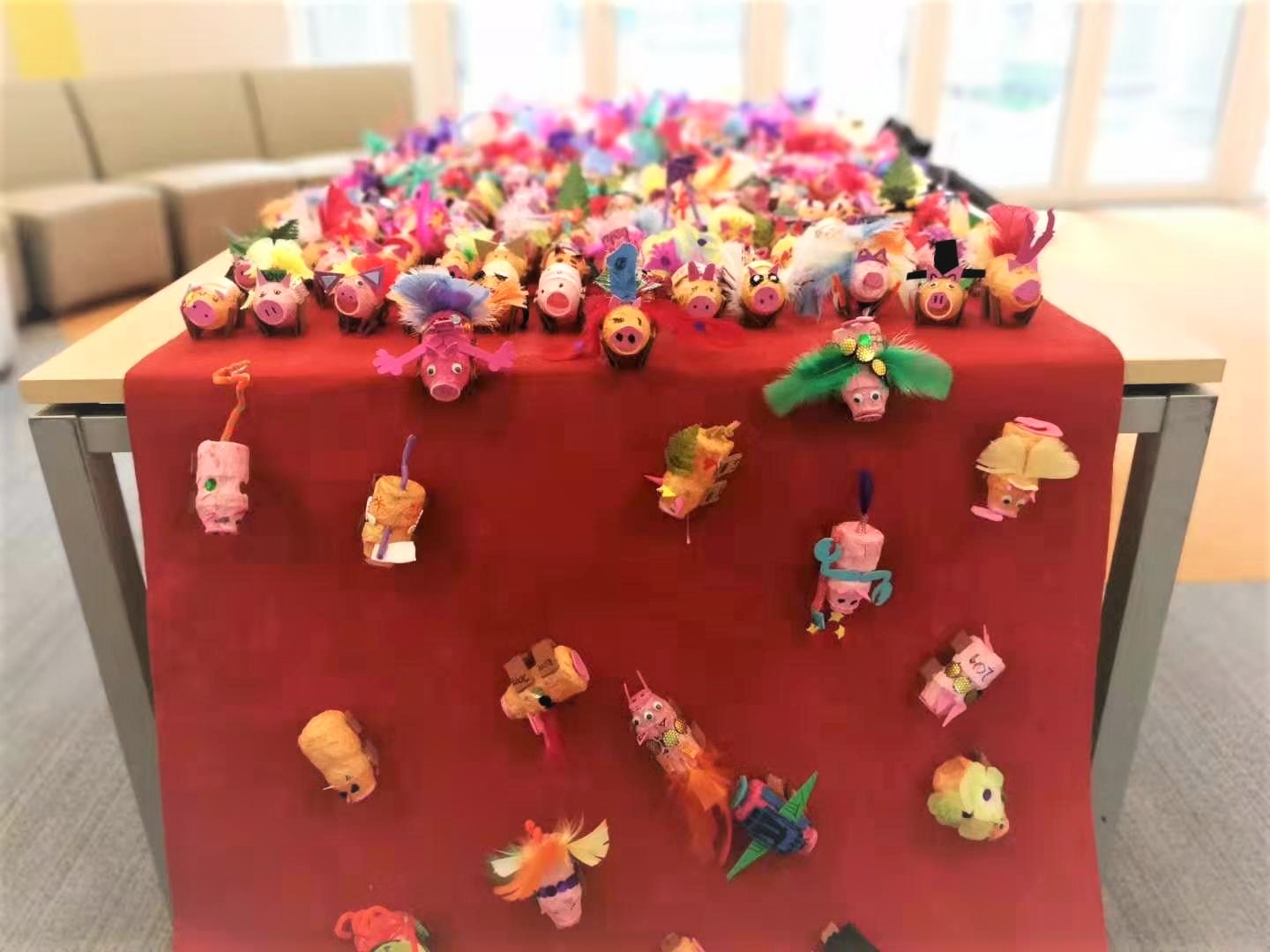 As such, most projects in the Lower Prep have a recycled element to them. Our famous pig project for last academic year's Chinese New Year celebrations is a good example of what can be done, as pupils reused over 900 discarded bottles making their wonderful pigs!
As such, most projects in the Lower Prep have a recycled element to them. Our famous pig project for last academic year's Chinese New Year celebrations is a good example of what can be done, as pupils reused over 900 discarded bottles making their wonderful pigs!
 As I mentioned at the start, we want to give every pupil both the skills and the confidence to enjoy art to the fullest, now and for the rest of their lives. Fortunately, they rarely need much encouragement, which makes them a joy to teach and I hope it’s an attitude they always keep with them.
I absolutely love having the opportunity to connect with so many children and watch literally thousands of individual projects coming to life. What’s more, no matter how many projects I see, our pupils are always capable of surprising me, which I take to be the best of signs that they are enjoying themselves and enjoying art.
As I mentioned at the start, we want to give every pupil both the skills and the confidence to enjoy art to the fullest, now and for the rest of their lives. Fortunately, they rarely need much encouragement, which makes them a joy to teach and I hope it’s an attitude they always keep with them.
I absolutely love having the opportunity to connect with so many children and watch literally thousands of individual projects coming to life. What’s more, no matter how many projects I see, our pupils are always capable of surprising me, which I take to be the best of signs that they are enjoying themselves and enjoying art.
Related Articles

Wellington hosts its third MUN conference20 Mar 2025
Wellington hosted its third annual Model United Nations (MUN) conference. Over 270 pupils from 13 schools joined us this year. The theme was ‘Habermas: The Public Sphere’, a reference to German philo
Read More

Discover & Grow at Wellington's Toddler Programme!30 Oct 2025
Give your little one (18–24 months) a joyful start in our immersive bilingual environment! Through music, art, storytelling, and outdoor play, our expert-led sessions nurture early language, motor coo
Read More

You’re invited: Fellows Programme Open House & Sports Showcase05 Mar 2025
Join us on March 18 at 5pm for our very first Fellows Programme Open House and then on Saturday March 22 as we hold our Fellows Sports Showcase. The Wellington Fellows Programme is the flagship of ou
Read More










